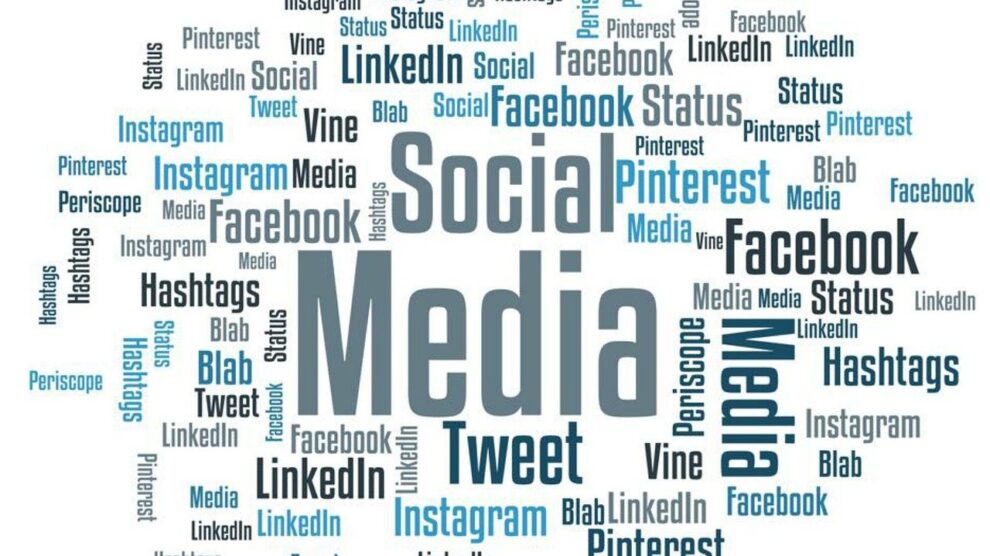Being an experienced service provider in this space, there has been a question that we’ve been asked a lot.
In fact, there have been so many instances in which this has happened that we’ve decided to write about it!
The simple question is – is social media a ranking factor?
The answer is not so simple and we’ll delve into it in this article.
Is Social Media a Ranking Factor?
Short answer – no. Social media is not a direct ranking factor, never was, and we don’t think there’s a possibility of that in the future.
Many people are confused when they see a bunch of links at the top of searches, and rightly so. If social media isn’t helping, why are there Facebook and YouTube links on searches?
The answer is that pages with a lot more traffic naturally rise to the top of searches. It isn’t because of the number of shares, comments, or any other social media metric.
To put it plainly – the pages rank because of their own SEO strength and not because of social media mechanics.
Does Social Media Support SEO?
Now, this is the right question to ask, and the answer is yes! Social media has more than half the world’s population on it.
It gives businesses a huge platform to work with for their lead generation and engagement metrics. Social media helps businesses rank above their competitors indirectly.
We talked about social links appearing before the website results in some cases and the reason is that those social media pages have better SEO strength.
And like we said before, while social media signals do not directly influence ranking signals on search engines, it helps a great deal.
There is enough reason for brands to focus on improving their SEO signals because it will help them rank better.
With these out of the way, let’s take a look at how social media platforms can help improve your website’s SEO metrics.
How Social Media Can Improve Your SEO?
1. Increased Brand Reach and Visibility
For a brand to taste success, it needs to have high visibility at all levels. Social media is one of the most used platforms in the world with more than 4 billion unique users on a monthly basis.
Social media can help businesses set up a much wider audience who would be interested in their brand. The high visibility can help a brand get better awareness and recall.
The more followers and shares a brand get, the higher are chances that people will talk about it to their circle. Virality of content is a real thing in social media.
There have been many examples of viral content catapulting a brand into fame. One such example is this viral video from a company called Manscaped.
2. Driving Organic Traffic to Your Website
If there were one metric that social media really helped for SEO it would be funneling organic traffic to your website. Getting traffic organically is a big deal for your marketing process.
Paid traffic is expensive over time. It also doesn’t guarantee high-quality leads like organic traffic can. Use your social media platform to share updates about your business with your audience.
Adding a posting schedule from your brand for blogs and articles is also a great idea. These can encourage click-throughs to your website improving the organic traffic rate.
When posting captions, be sure to be creative and use compelling CTAs to get the audience’s attention. Just posting the same byline from your blog will not do you any favors.
3. Social Signals Are Vital for SEO
Like we said before, while not directly benefiting SEO, social signals do matter in the larger scope of things.
The more engagement you get on a particular post on your social media profile, the better are chances it will be featured on searches.
The reason is that all of these indicate high engagement which automatically puts it higher on the SERPs. Social proof also boosts credibility, another important factor when it comes to calculating rankings.
A lot of people visit your website through your social media posts which indirectly translates into better SEO metrics for you.
Other content collateral like blog posts, infographics, videos, and more receive a boost in viewership when you add them to your social media feed.
4. Improved Engagement Metrics
When it comes to ranking higher on searches, especially for companies that are just starting out, engagement is a vital SEO metric.
It is also one of the toughest ones to do well because the audience today has a lot of choices for content. This is where social media can be the difference for your marketing.
Getting your social media profile up can improve interaction rates and get you repeat visitors.
Also, take into account that people who regularly follow your social media account will take the time to engage with you either through your profile or your website.
To improve engagement rates further, consider including user-generated content in your schedule.
People are more inspired to follow your brand when there is a chance to feature their work on your social media.
5. Using Social Media for Backlinking
Any marketer knows how difficult it is to get credible and relevant backlinks for a business.
With the increase in brands, backlinking has been more than a bit challenging, especially when you’re up against well-entrenched brands.
Leverage improved backlinks by collaborating with prime influencers in your niche. Promote guest posts from these influencers on your social feed so you can get a share of their audience.
Sharing creative and engaging infographics is a great way to attract authority backlinks to your website. Sharing press releases on your social feed can also improve backlinking for your website.
Take the time to engage with other bloggers and journalists on your brand profile. All of this form a strong picture of credibility for your brand.
6. Better Local SEO Presence
One of the most distinct advantages of social media is that it is deeply connected to your locale.
Optimizing your social media profile to get better traction for local SEO is a great strategy for a stronger local presence.
To this end, you can encourage local customers to post their reviews on your social page which you can then use to improve your credibility.
Geo-tagged posts on social media are a great way to improve brand relevance and target local leads. It opens the brand to engaging with customers in and around the geo-tag.
Ensure that you periodically use location-based hashtags for specific posts about local relevant events or services.
Last but not least, getting your business on Google Business Profile offers you several benefits including powerful local reach and related services from Google like Maps and more.
7. Boost Content Sharing and Engagement
Social media is built for content! So, it should be no surprise that most brands leverage it to boost engagement and promote their content.
When sharing content posts on your feed, remember to make sure that you have eye-catching visuals and compelling words.
Interactive content is a huge hit on social media. Include branded content like polls, quizzes, and contests to get the most out of your social media posts.
Choosing the right hashtags, the ones that are trending and relevant to your brand is vital.
If you have the framework and the bandwidth, you could conduct interactive Q and A sessions with your followers to get even more traction.
8. Better Brand Credibility and Trust
It comes as no surprise that social media platforms help brands build social proof and trust. One of the cornerstones of social media is that the interactions are a lot more genuine than other platforms.
Social media gives everyone the right and a voice to communicate with whomever they choose.
For brands, this can be leveraged to create engaging dialogues with potential customers that can be used as social proof. Share customer testimonials on your social media profile.
It’s a great idea to invite people to share their branded content on your feed. Featuring user-generated content can improve engagement and ensure more people follow your brand on socials.
9. Brand Profiles Can Rank on Searches
Branded social media profiles can rank on searches and this can be a great way to outrank your competitors. Ensure that your social media bio is correctly optimized with keywords and hashtags.
Having a high follower count helps word-of-mouth marketing which can in turn improve SERP rankings.
The content of your posts should be optimized for relevant keywords.
It is vital that you never reuse content from one post to another. It is okay to reuse hashtags but never entire sentences. Have enough links to your website or landing page so people will click it.
10. Integrating Keywords for Better SEO
Keywords are a big part of SEO and also social media profiles. Make sure that you have an optimized list of keywords ready to use on your social media profile.
Researching unique keywords that are more suited to social media is a good starting point. Also, work on the right branded hashtags to use for your brand.
Ensure that you add important keywords to your bio but never overload it because people will tend to click away from ‘salesy’ brands.
All your keywords should align with search intent and not just because they’re trending in the current timeframe.
Lastly, ensure that you take time to interact with your social media followers through the comments section. Regularly audit your keyword list and monitor their performance.





